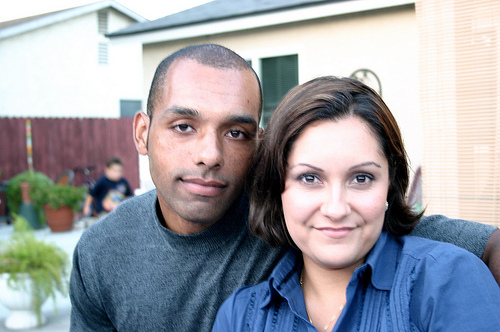How to Handle Family Problems at Your Wedding

A wedding is an amazing time in a couple’s life. Traditionally, a wedding means that two people have finally found that one person that’s a perfect match.
They have found someone who understands them, loves them, and wants to spend the rest of their lives in the other’s company. What a wonderful feeling!
Being a celebration of two souls coming together to become one, you’d think that friends and family members would be ecstatic for you and would want nothing more than to have the honor of celebrating this incredible day with you.
However, that’s not always the way it works.
For friends and especially families, weddings can be very emotional and very difficult.
A mom may no longer be the confidant in her son’s life, a father may feel like his little girl is being taken away from him, and friends may feel like they are being abandoned.
What’s even worse is when one set of parents attacks their child’s partner feeling like he or she is truly at fault for how they are feeling. Is any of this really accurate?
Of course not, but it’s hard to reason with emotions.
You are your soon-to-be spouse absolutely deserve to have the best event in the world to celebrate what you two have found in each other, but this usually does not come without any hitches.
If you want to preserve those precious relationships, you’re going to have to face these issues head on. Here are some tips for doing just that.

Be Gentle With Them
Usually any “emotions” that arise during the wedding planning phase are sadness, jealousy, or even a lack of self-confidence.
Like some of the situations we mentioned above, the loved ones in each of your lives are not upset that you are getting married, but there are most likely some underlying feelings that they simply do not know how to handle.
This may be jealousy from a sister that has yet to be married, a friend that fears that you will no longer talk to her after you are married, a father scared that he will lose his daughter or a mother her son, or even someone in your lives that doesn’t understand your decisions.
When my husband and I moved to Arizona from Texas we had many friends and family members that were angry with us. We knew good and well that it wasn’t really anger, but fear, sadness, and even jealousy.
Let these people know that you understand that they are not happy. Offer your shoulder if they need to talk or your assistance if they need it.
It might be as simple as asking if they want to join you in working on the planning of your wedding. They may just want to know that you still care and haven’t forgotten hem in all of your excitement.
Quick Poll
Are you having any problems with your parents?
Really Listen to What They Are Saying
If your folks are normally loving, thoughtful people who have always had your best interests at heart, and they have genuine concerns about the person to whom you expect to commit your life, pay close attention, advises Tina B. Tessina, Ph.D., a psychotherapist in Long Beach, California.
Talk to them—without your fiancé present—about what specifically concerns them.
“Parents are right to worry about a guy with undesirable qualities, and you could save yourself a lot of pain and trouble if you listen to them,” advises Tessina.
However, this may not be the case at all. Consider that your parents may have had a specific image in their minds about who they would have imagined you marrying that simply doesn’t match up with the person you chose.
Just reassure them that you are happy and make sure to speak well of him or her in their presence.
It may just take them some time to adjust to the new situation and get to know the man or woman that you have chosen. If for some reason they never like this person, it’s just fine.
You are the one that has chosen to spend your life with him or her. You will be living with him, and you can simply request that they be respectful in his presence.

Give Them Time
Most of the time, if there are any relationship problems between friends and friends, parents and parents, friends and your partner, parents and your partner, or whoever, a little time heals all.
You can always expect a few clashes right up front when you first try to combine different friends and families.
This doesn’t mean that they won’t all get along at some point, and may even find great friendships that they never would have found otherwise. Just have a little patience and try to minimize any negativity, keeping them separate indefinitely if needed.
You and your partner probably had a few clashes and differences in opinion on several topics when you first met.
Give your loved ones the same chance to get to know one another. If you remain positive and encouraging, your good attitude may just pour over onto everyone else.
Be Fair
Divorced parents are one of the biggest situations to come up in weddings, but this doesn’t have to become an issue.
Hopefully, yours are the kind of parents who will put your needs ahead of theirs—at least for your wedding day. Even so, it may be worth reminding them that they have a responsibility to “be civil and gracious toward each other for the few hours of your ceremony and reception,” says Tessina.
Also, pay close attention to the seating arrangements: At the ceremony, seat the parent with whom you are closest (plus his or her new spouse, if there is one) in the first row and the other in the second.
At the reception, put them at tables with their own relatives, equidistant from the head table.
And be sure to acknowledge them both in any toasts you give at the reception, so they never think one is getting preference over the other, she says.
You can only do your best, and insist that they be reasonable otherwise.
If at any moment it becomes inappropriate, don’t fear asking the one(s) causing problems to leave or not come to the wedding in the first place. In the end you can’t please everyone and it’s not fair to you to be expected to.

Stand Up For Your Relationship
Don’t tolerate in-law bashing. When it really comes down to it, if you truly want a happy life with the person you are going to marry, you will have to put your foot down about your relationship, and your choices together.
Don’t fear telling your friends and/or family that this is the person you have chosen to spend the rest of your life with, and that you need them to respect and honor that. If they can’t, there will always be distance between you.
Parents especially like trying to tell you how your wedding should go, what decisions you should make, and like to question and even criticize what you want for your wedding day.
If you let this happen, it will continue into your married life with decisions about where you will live, your children, your jobs, etc. If this starts happening with you, make it a point with them that you will shortly be husband and wife.
From this point on you will be making decisions together.
You can reassure your friends and family members that you still care about them and respect their opinions, but when it comes down to it, the decision will be made with your partner.
It may not be possible to avoid all family problems during the planning and on the day of your wedding, but there are many things you can do to set everyone up for success and head problems off before they have a chance to start.
Remember that your friends and family care a great deal about you and need your patience and understanding.
However, don’t allow anyone to mistreat you or your partner. A little resolve now when it comes to your families will really pay off in the future.
Quick Poll
Would you ever consider not inviting your parents to your wedding if it got bad enough?
© 2013 Victoria Van Ness








